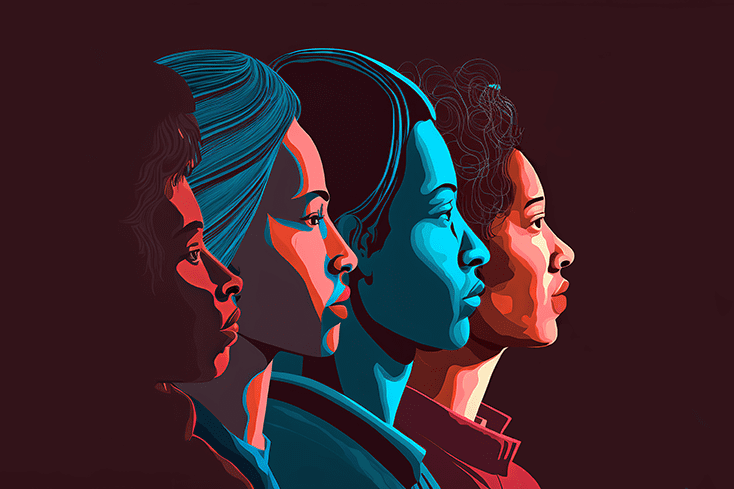
“Don’t call me crazy!”
Unfortunately, this plea is common in Black/African Ancestry communities when peers or family members misunderstand someone who has a serious mental illness (SMI). Beyond being misunderstood, people in this community have a greater chance of being misdiagnosed or, even worse, undiagnosed for mental health conditions. This is largely a result of structural inequality that has caused many Black/African Ancestry communities to be uninformed about SMI, the importance of accurate diagnosis, treatment options and the types of resources that are available.
The Community Health Equity Alliance (CHEA), launched in 2021 by Janssen Neuroscience is a collaboration with state and local community partners. CHEA gathers stakeholders who bring diverse partners from across advocacy organizations, peer support groups, provider networks, academia, civic and faith organizations. Together, they identify care gaps and present scalable, community-informed solutions that improve access to mental health services.
To ensure that Black/African Ancestry communities receive the help and hope needed to thrive, NAMI is thrilled to share our engagement with the Community Health Equity Alliance. This partnership reflects our goal to establish a community commitment that focuses on advancing mental health equity solutions for people experiencing mental illness.
As Manager of Black, Indigenous & Persons of Color (BIPOC) Male Mental Health at NAMI, I am supporting several identified NAMI State Organizations in hosting educational programs (in partnership with organizations aligned with our vision of promoting awareness around SMI) and expanding community outreach and engagement strategies. This type of programming also normalizes seeking help, as we move from education to navigating to care providers.
The Impact of Stigma: “I Can Do Bad All By Myself”
According to the American Psychiatric Association, only one in three Black/African Ancestry adults receive treatment for SMI. People in the Black/African Ancestry community are also:
- Less likely to receive guideline-consistent care
- Less frequently included in research
- More likely to use emergency rooms or primary care (rather than mental health specialists)
One of the various reasons why there are not more individuals in community seeking help may boil down to stigma. As someone who identifies as a Black/African Ancestry male, I know firsthand how seemingly difficult it can be to ask for help. We are taught to “be strong” — that we need to put our family’s well-being ahead of our own, and that “boys don’t cry.” As a result, many of us shun seeking professional help, regardless of how serious our mental or physical conditions may be.
The work that we are doing through CHEA is designed to interrupt the pattern of limited knowledge in the Black/ African Ancestry community. We are doing this through intentional coalitions of strategic partners in mental health advocacy, faith civic networks and provider networks to expand SMI awareness and eliminate stigma.
Expanding our Impact
CHEA amplifies the unique care needs and rich heritage of the Black/ African Ancestry community, including Pan-American, Afro-Latino and Black and Brown communities. Our collective effort aims to improve navigation to trusted and diverse care providers, elevate the importance of crisis mitigation, expand 988 awareness and improve SMI education.
To accomplish this, we are expanding partnerships with Historically Black Colleges & Universities (HBCUs), such as North Carolina A&T and Southern University, as well as Delta Sigma Theta Sorority, Inc. and others. We are integrating the concentration of SMI alliances within the faith community, as we know faith leaders are often entrusted with the care of Black/African Ancestry communities.
CHEA is expanding nationwide, and we plan to carve out a new path of advocacy for Black/African Ancestry communities. Through our advocacy, we will help provide a road map for other marginalized communities to address the same health inequities.
Archie Green is the Manager of BIPOC Male Mental Health, in the Cross-Cultural Innovation & Engagement Hub at NAMI. Originally starting his career at NAMI Greater Cleveland in 2021, he now works remotely with the national office while residing in Los Angeles, Ca.

